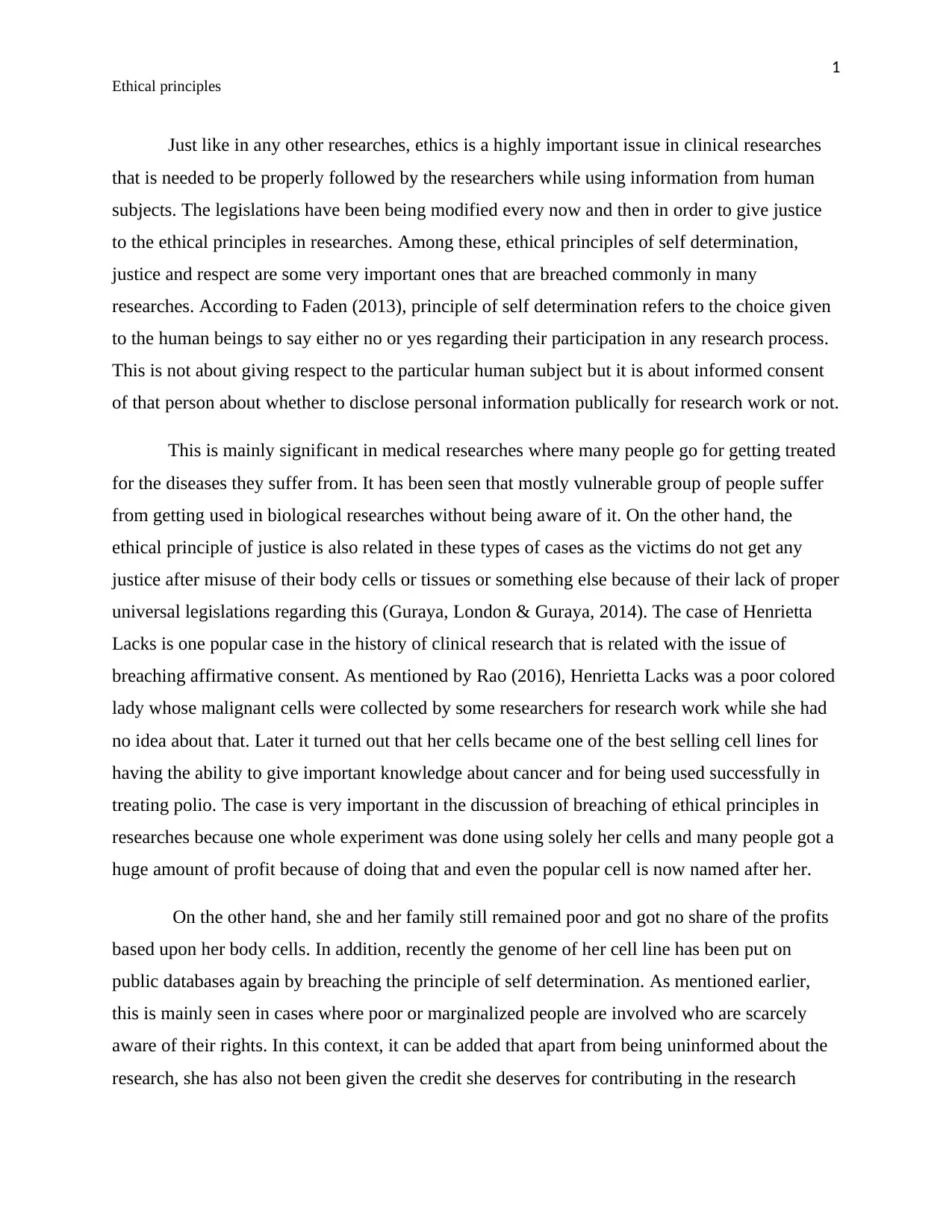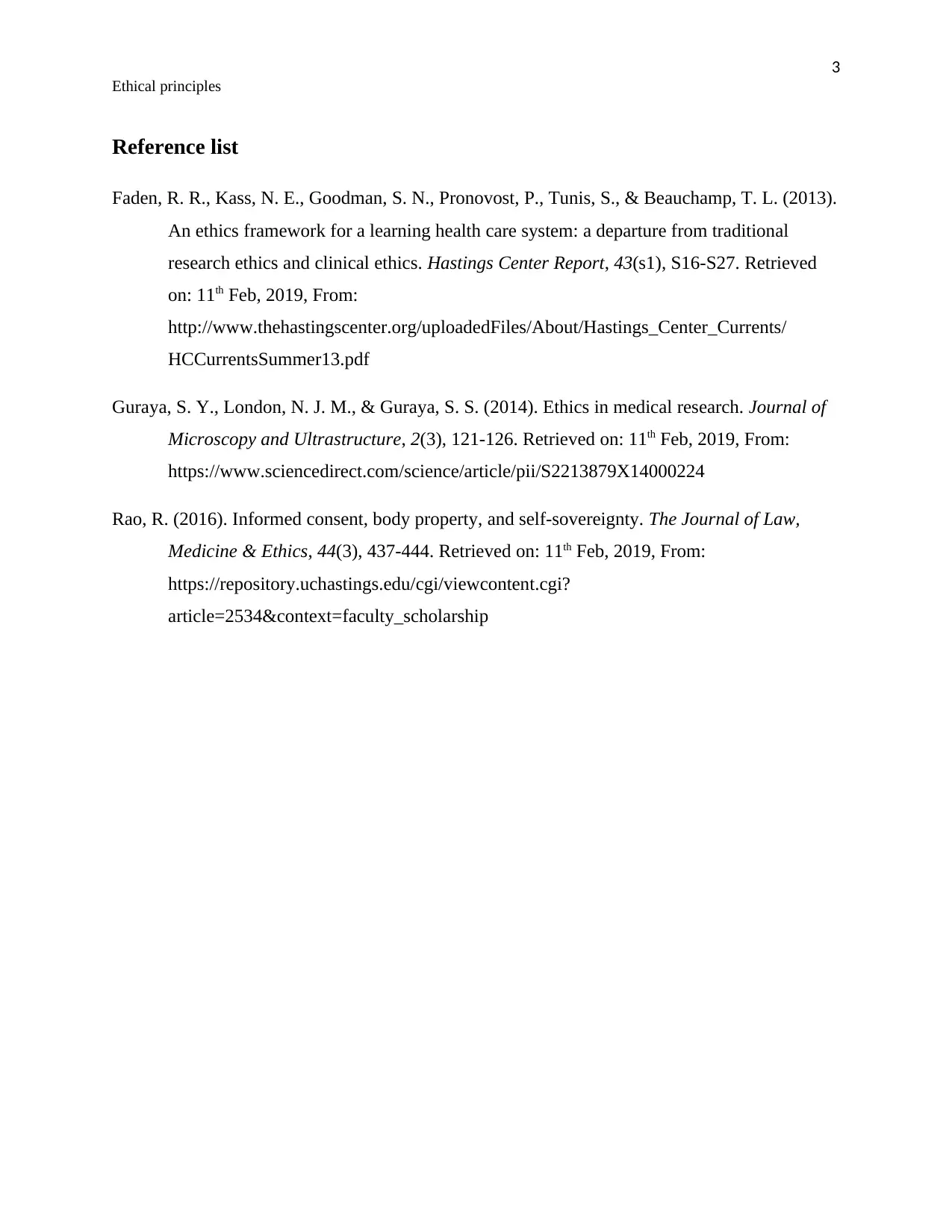Analyzing Ethical Principles: The Case of Henrietta Lacks' Cells
VerifiedAdded on 2023/04/25
|4
|741
|144
Essay
AI Summary
This essay explores the ethical principles of self-determination, justice, and respect in clinical research, using the case of Henrietta Lacks as a prime example of ethical breaches. It highlights how Lacks' malignant cells were collected and used for research without her informed consent, leading to significant profits for researchers while she and her family remained marginalized. The essay argues that this case demonstrates a violation of Lacks' right to self-determination, as she was not given the choice to consent to the use of her cells. It also points out the injustice in profiting from her cells without providing her or her family with any compensation or recognition. Furthermore, the genome of her cell line was later placed on public databases, again breaching the principle of self-determination. The essay concludes by emphasizing the need for stronger measures to protect human rights in research and to ensure that vulnerable populations are not exploited.
1 out of 4











![[object Object]](/_next/static/media/star-bottom.7253800d.svg)